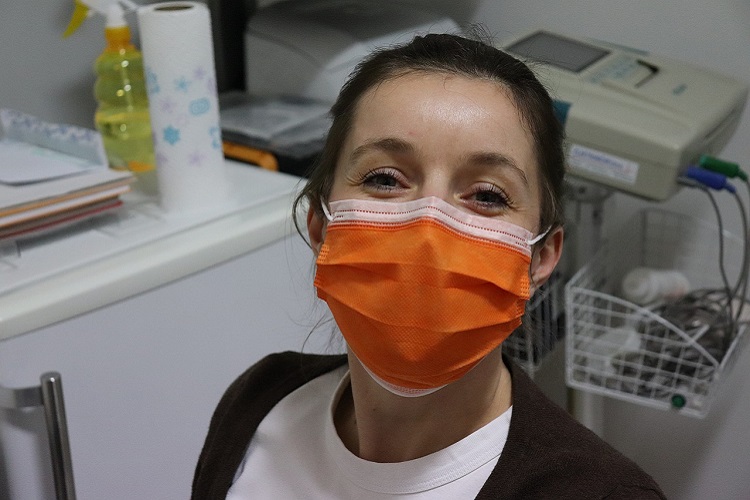30 September 2021
Researchers at the NIHR Health Protection Research Unit in Behavioural Science and Evaluation at University of Bristol and University College London Centre for Behaviour Change, in collaboration with Bristol Drugs Project (BDP), have successfully piloted a nurse-led walk-in physical health service embedded in BDP. The new service was found to be acceptable to both service users and BDP staff. The National Institute for Health Research funded study was published in the International Journal of Drugs Policy.

People who inject drugs may experience difficulties accessing traditional healthcare services that worsen existing health inequalities. Experiences of stigma and negative interactions in healthcare settings, anxiety and severity of dependence (amongst other factors) contribute to these difficulties. Providing healthcare services within community-based drug services may provide a practical, feasible and beneficial approach for overcoming some of these issues to increase access and delivery of healthcare.
The non-prescribing nurse-led walk-in service included: safer drug injecting advice; overdose prevention and naloxone supply; wound management; infectious disease screening, vaccinations, treatment and referrals; and healthy eating and dental advice and referrals (see the paper for a full list of the services provided).
Interviews with 13 service users and a focus group with 11 BDP staff explored the acceptability of, and barriers and facilitators to, using and delivering the service. The research team used two behavioural science frameworks to conduct the study: the theoretical framework of acceptability (TFA) and the
COM-B model.
The main findings are:
- Service users and providers were confident they could access and provide the service and felt it was good at meeting service user needs.
- Barriers to using the service included competing priorities (e.g. drug use) and the potential impact of the service being removed in future was viewed as a barrier to overall healthcare access.
- Service users and providers viewed embedding the physical health service within an existing community-based drug service as offering accessible and holistic care which reduced stigma and discrimination.
Niall C. Anderson, lead author who conducted the study while working as a Senior Research Fellow in Health Psychology at the University College London Centre for Behaviour Chance, said: “This study shows that integrating a health service within an existing community-drug based and alcohol service may provide an acceptable, feasible and beneficial approach not only for those who may use the service but also those providing it. Further research is needed to assess the replicability and cost-effectiveness of this approach.”
Jo Kesten, Research Fellow, NIHR Health Protection Research Unit in Behavioural Science and Evaluation at University of Bristol, said: “Finding novel ways to support people who inject drugs to receive healthcare and reduce the significant health inequalities they face is an important public health issue. This evidence supports the provision of healthcare services within community drug and alcohol services.”
Rachel Ayres from Bristol Drugs Project said: “We are delighted that these findings support our decision to integrate nurse-led healthcare into our harm reduction services at BDP – it continues to be a popular service”.
Paper: Acceptability of, and barriers and facilitators to, a pilot physical health service for people who inject drugs: A qualitative study with service users and providers by Niall C. Anderson, Joanna M. Kesten, Rachel Ayres, Matthew Hickman, Richard Amlot
Further information
About the NIHR Health Protection Research Unit [HPRU] in Behavioural Science and Evaluation at the University of Bristol
The NIHR HPRU in Behavioural Science and Evaluation at University of Bristol is one of 14 HPRUs across England, part of a £58.7 million investment by the NIHR to protect the health of the nation.
The NIHR HPRU in Behavioural Science and Evaluation is a partnership between Public Health England and University of Bristol, in collaboration with MRC Biostatistics Research Unit at the University of Cambridge and University of the West of England.
Each NIHR HPRU undertakes high quality research that is used by PHE to keep the public safe from current and emerging public health threats.
About the NIHR
The mission of the National Institute for Health Research (NIHR) is to improve the health and wealth of the nation through research. We do this by:
- Funding high quality, timely research that benefits the NHS, public health and social care;
- Investing in world-class expertise, facilities and a skilled delivery workforce to translate discoveries into improved treatments and services;
- Partnering with patients, service users, carers and communities, improving the relevance, quality and impact of our research;
- Attracting, training and supporting the best researchers to tackle complex health and social care challenges;
- Collaborating with other public funders, charities and industry to help shape a cohesive and globally competitive research system;
- Funding applied global health research and training to meet the needs of the poorest people in low and middle income countries.
NIHR is funded by the Department of Health and Social Care. Its work in low and middle income countries is principally funded through UK Aid from the UK government.